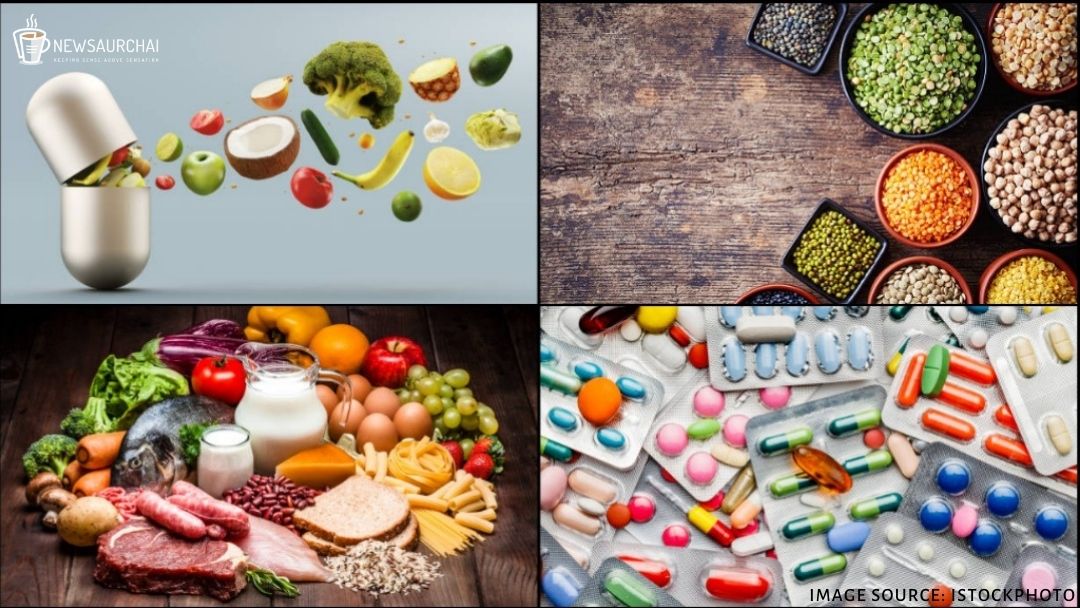
With the Coronavirus pandemic raging globally and the development and release of preventive vaccine still uncertain, a large number of concerned consumers are opting for an alternative source for improving their immunity other than conventional food items. The health food industry is facing a tremendous surge in demand for dietary aids like immunity-boosting supplements, vitamins and minerals, to reduce the possibility of contracting the potential symptoms of COVID-19.
According to sources, around 25 per cent of global consumers have been found to resort to buying significantly more health foods, following the WHO’s announcement of the global pandemic. As the consumers are becoming more health-conscious, the demand for customized vitamins, minerals and extract blends is steadily increasing, especially in case of the vulnerable section such as the elderly and those with pre-existing health problems, and may soon become a part of the everyday diet in many households.
In response to this demand, companies like Boots in UK has customized a Vitamin C, and Zinc supplement, Amborella Organics in USA has created a plant extract-based immunity supplement, while the Garden of Life CBD Probiotics capsule of USA has been termed as a high-performance immunity aid.
Tracy Landau, president of brand-strategy firm MarketPlace, said “COVID-19 has shifted the supplement market. Health and wellness brands that are agile and can pivot to meet evolving consumer needs will emerge from this season the strongest.”
Health supplements–boon or bane:
Dietary/health supplements can be beneficial, but the chief source of acquiring proper amounts of vitamins and minerals, is a balanced diet.
Nutritionists and doctors recommend food first as many bioactive compounds, carotenoids, flavonoids, antioxidants and dietary fibre that are essential for health are present only in conventional foods and not in health supplements. The same synergistic effect would not be obtained. Moreover, certain health supplements reduce the absorption of fat-soluble vitamins in the body.
Although supplements can fill in dietary gaps and deficiencies, but only when taken in addition to healthy food items and nutrient-dense conventional food, and not as a replacement. Too much of a particular health supplement can also turn out to be toxic and harmful. Therefore, it is advisable that consumers should only take health supplements after judging if the potential benefits outweigh the probable risks, or on the recommendation of a dietician.
However, health supplements apparently cannot be used to cure, prevent or treat a disease like medicines, and are considered to be food rather than drugs. Therefore, though they may strengthen the immune system, they may not necessarily be the cure or prevention of COVID-19, as per studies.
Organic food demand boost:
The demand for organic and sustainable foods has also increased due to the Coronavirus pandemic. The sales of organic products have seen a hefty increase in the US, UK, France, as well as India.
Finn Cottle of Soil Association Certification said, “Organic product sales outperformed the growth seen in the non-organic sector in the same time period, with significant increases in purchasing of grocery items such as tea and coffee and home-baking, alongside organic wine, beef and butters and fats.” Functional foods, fruits and vegetables are in high demand as consumers are becoming aware of the relationship between nutrition and health.
However, there is an ongoing debate on whether organic foods are better than conventional foods. Some experts believe that organic foods avoid synthetic pesticides and harmful agrochemicals while having more nutrients than traditional foods. Thus, they are safer and have a greater nutritional value. Demand for locally produced food is also increasing since people are becoming concerned about the transparency of the source.
On the other hand, many scientific studies have revealed that there are no significant health benefits or nutritional differences between organic and conventional foods. Some claimed advantages like higher levels of omega-3 fatty acids, antioxidants and phenols, may not have materially significant benefits. Though conventional foods may have higher pesticide residue than organic food, but they are well within global safety standards and pose no harm. Thus, opting for organic foods are apparently just a waste of fortune, argue some experts.
The key to an efficient immune system thus lies in a properly balanced diet filled with nutrient-dense foods. If one wants to enhance their diet using health supplements or other alternative food sources, then they should consult with their dieticians before doing so.





